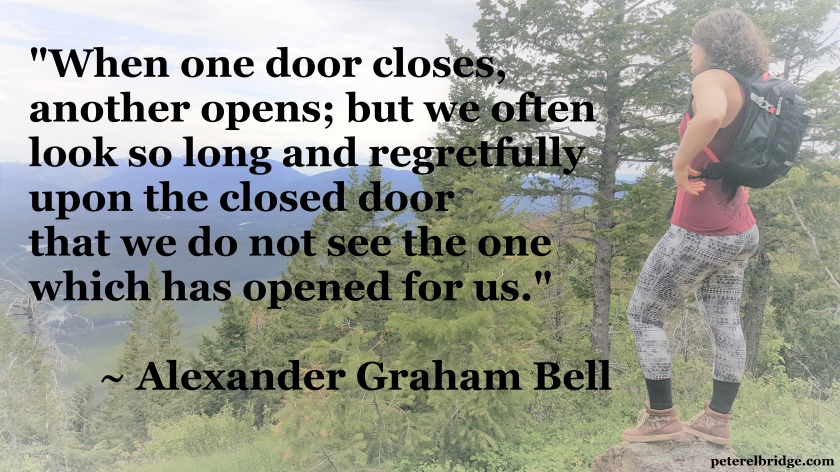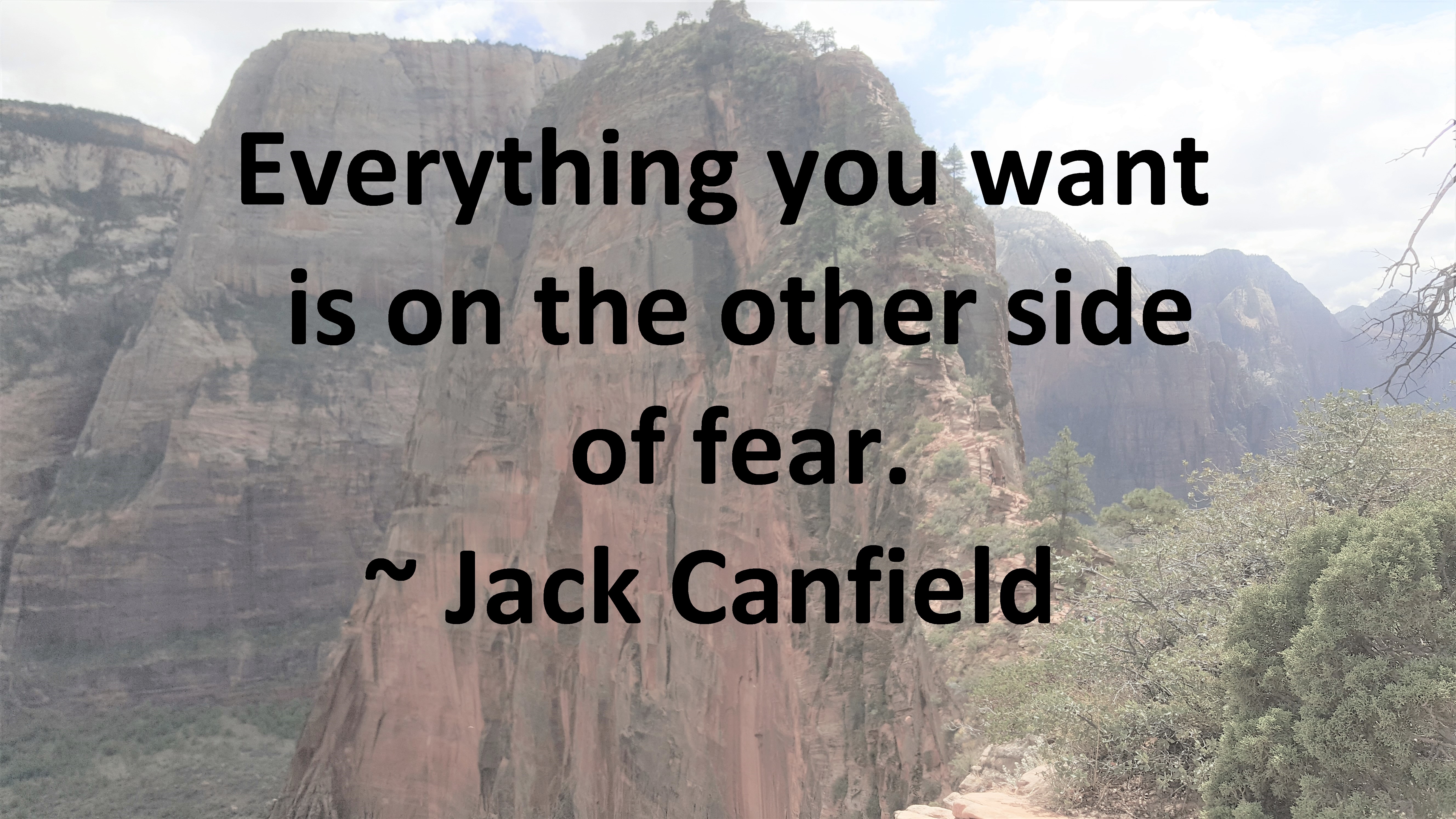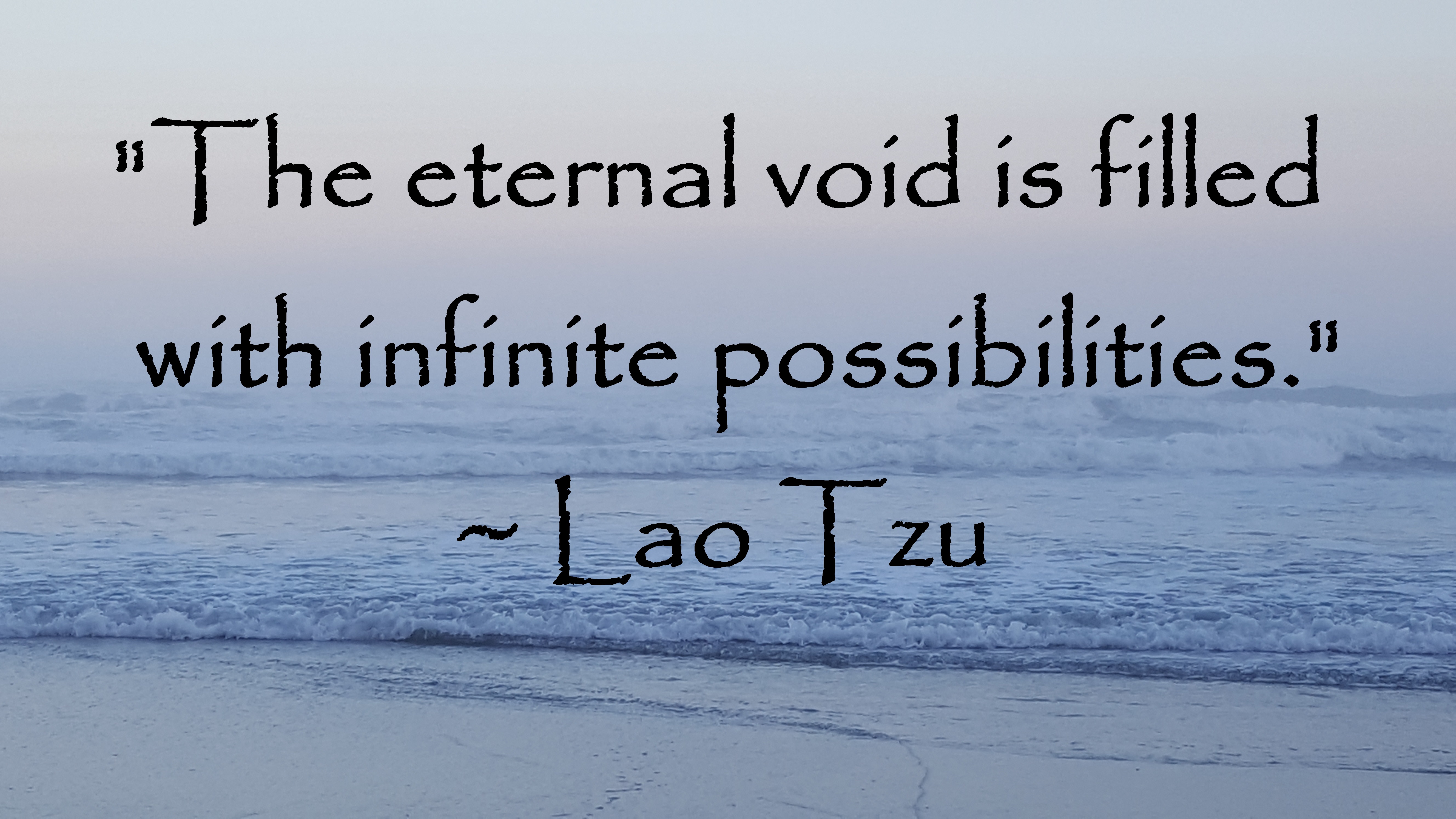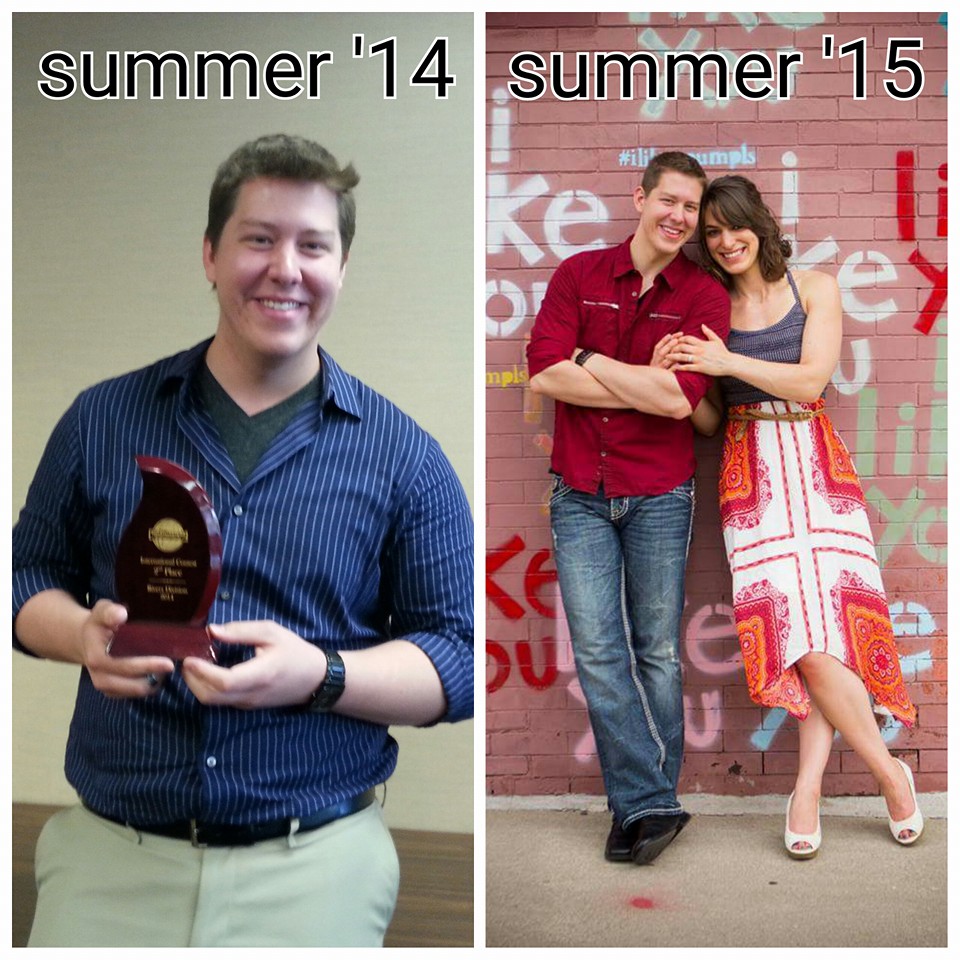What is something you really want that you CAN’T have right now?
I’m not running right now, and it’s driving me crazy. In any given year, if you asked me to list my top 5 favorite things in life, “Running” would be somewhere on that list. I never want to not run. Unfortunately, these last couple years have been sort of on-again-off-again for me as a runner. And some pain in my glute, leg, and feet, these last couple weeks are keeping me sidelined for a spell. And it is making me really sad Every Single Day.
I think about people who find out they can never run again, dance again, sing again, hike again, play sports again–at least not in the same way they always have. People who have a big thing permanently taken away from them. I can’t think of a much yuckier feeling.
So my little thought for you today–little reminder, since I know it’s something you already know:
Can we stop fixating on the one thing we don’t or can’t have, and missing all the amazing things we could have instead?
Before we charge ahead with our new-found positivity, let’s hold up and acknowledge something together. Because if we don’t, we’re going to run out of steam. There IS time for SADNESS. If you love love love running and you can’t run, that is sad and you should feel it. Denying your feelings doesn’t go well. For example, positivity can feel tough for me around the specialest holidays. Holidays are supposed to feel happy and cozy with family to excitedly see and catch up with and love on. And that’s not something I have in my family. And each holiday will have a little bit of that sting. Respecting and exploring that sting for a while helps me feel better. Sadness is supposed to be felt through. The sadness also teaches me good things, it reminds me to be a good person, of the good things to nurture and the bad things to avoid. Sadness teaches people to break sad cycles. And it makes happy-things, loving-things, good-things more special.
But then . . . once we’ve felt the sad through . . . do we stay there?
Denying sadness costs things. But so does staying there. Fixating on the things we can’t have paralyzes us. It sucks the life out of us. Sometimes “You only live once” is the best reminder. How much of this unique, once-in-a-lifetime year are you going to spend regretting–wishing hopelessly?
“When one door closes, another opens; but we often look so long and regretfully upon the closed door that we do not see the one which has opened for us. Defeat is nothing but education; it is the first step towards something better.” ~ Alexander Graham Bell
Fixating on what we can’t have leads to bitterness, purposelessness, anger, burnout, lifelessness, addiction, heartbreak and broken relationships. Yes, there are some beautiful things that, had life gone differently, you could have, but that just aren’t for you now. So we can brood. We can chase. We can try to find illicit ways to take those things. We can complain and complain. We can find ways to numb the pain, sometimes replacing the thing we’re sad we can’t have with another thing we probably shouldn’t. We can become so obsessed with the idea that we can get our thing back that we neglect and run over the good things and the good people in our lives to try to get the one missing thing back. Sometimes we get it back, only to realize it cost too much.
This pandemicky year holds lots of great illustrations of what happens when people fixate on what they can’t have, instead of processing the sadness and then moving forward toward things they still can. Anger, bitterness, and tantrums every day from those who really just want to go to the theater, a concert, to eat out at a restaurant, who can’t have the state fair now, who don’t get to see their grandchild for a while. If you’re feeling like that’s not fair, let me say again–these are really sad things, you should feel grief and anger. But feel it through, feel it big, express it, explore it, and then remember to turn and look at the good things a lot, too. To chase the things still here. This year, we have seen each other get so fixated on things we’re losing that, in our grief, we offer to sacrifice other really important things–like vulnerable people–to get back the stuff we want. The cost of losing our things is so high, that we feel it would be better to just let the sickness and death happen to more people, because my life without XYZ is worthless. . . . . . Is it? What other good things are you forgetting? Things you still have? Things that, even just temporarily, you can transfer your energy to?
I’ve had lots of times to learn and relearn this lesson in my life. Running is a big one. Concussions are big, too. Sometimes people don’t realize the long list of things a simple concussion can take away from you. I’ve spent days and weeks in recovery from concussions fixated on the fact that I can’t go for a run or even a walk, on the fact that it hurts to watch movies, the fact that I don’t even enjoy music or laughter or friendship for a while, because everything got scary and all the noises and sounds are massively overwhelming. I had forgotten that I have spent weeks in my everyday life craving the freedom to just sit or lay quietly, to just sit under a tree and feel the breeze on my skin, to try meditating for hours. Fixating on what was lost . . . cost me so much precious time that I could have cultivated beautiful things that were still there waiting for me. Sometimes this happens with little one-person vacations. I love, love, love having time totally alone. Time to check in, to reset, to sink deep into who I am, how I feel, what I want. Time to read, to write, to plan, to dream, to feel, to rest. If you ever ask me, “How would you like a weekend all to yourself?” I ‘d say ohmywordYES howaboutTOMORROW! But then when those weekends come around, I feel this pull to fixate on the temporarily lost things. Human connection. Missing my best friend and life person. Conversation. The security of being seen and heard. It takes a lot to refocus, to let those things go for a few days, and to embrace all these wonderful things I’ve been wanting. Isn’t it strange how good we are at latching onto the losses and the hurts and the disappointments? This year, I’ve found some presence to try on some mindful focus during a pandemic. There are a lot of favorite-things I can’t have this year, but I’ve gotten to practice shifting my focus to the good things I can have. To see that as some doors shut, others are opening. To ask what possibilities this unique year holds. It has helped.
Of course, it’s not natural or easy to let go of the heartbreak and redirect toward the good things we still have. Here’s a little hint for moving forward: Sometimes the thing keeping us from looking at all the good things we have is the fact that we’re squeezing our eyes shut tight so we don’t have to look at the hurt of the things we’ve lost. The best way to get to the other side of sadness is to feel it all the way for a minute. Feel all the sad. And then open your eyes to all the beautiful possibilities.
So I’ll ask again:
Can we stop fixating on the one thing we don’t or can’t have, and missing all the amazing things we could have instead?




